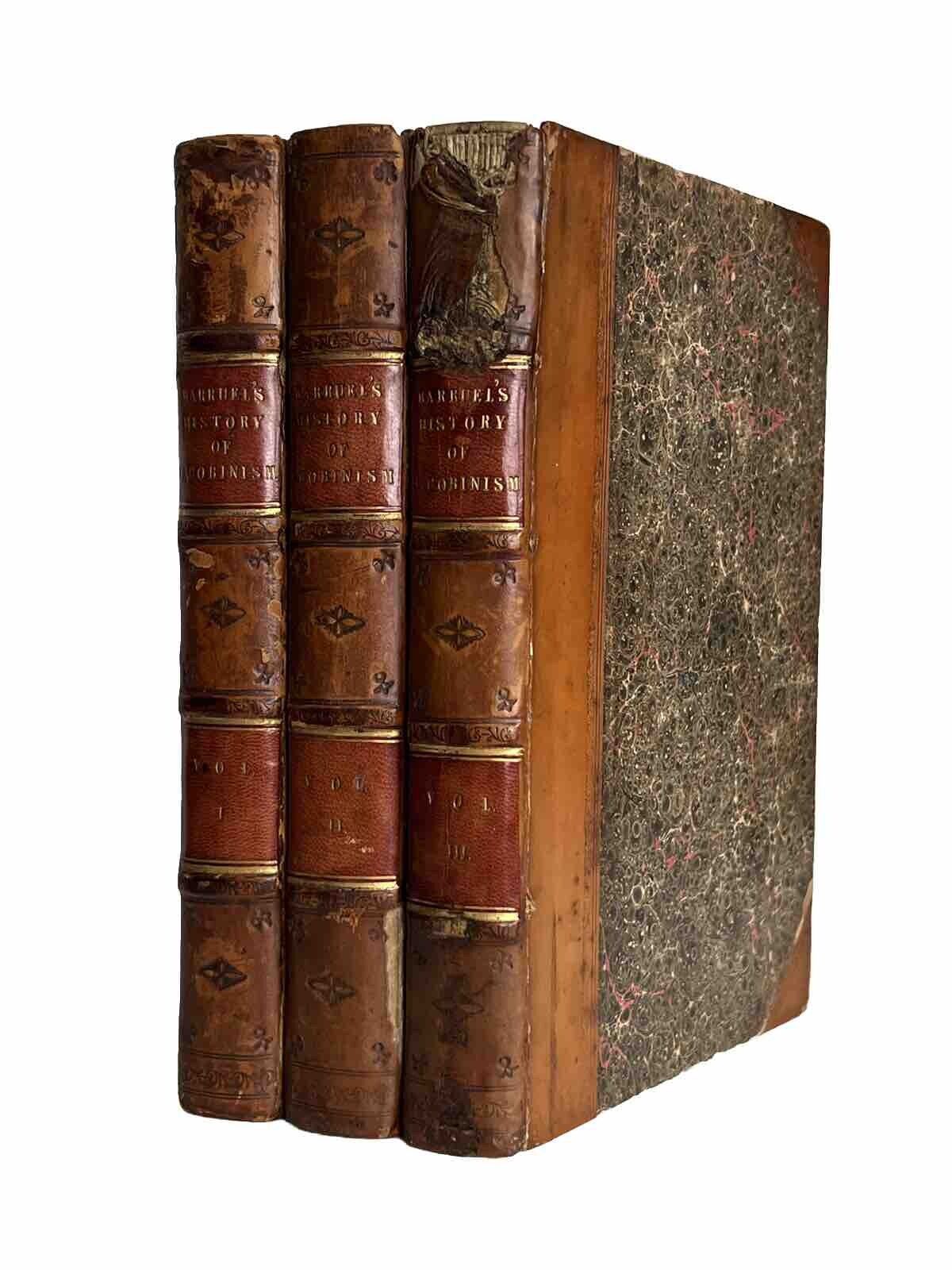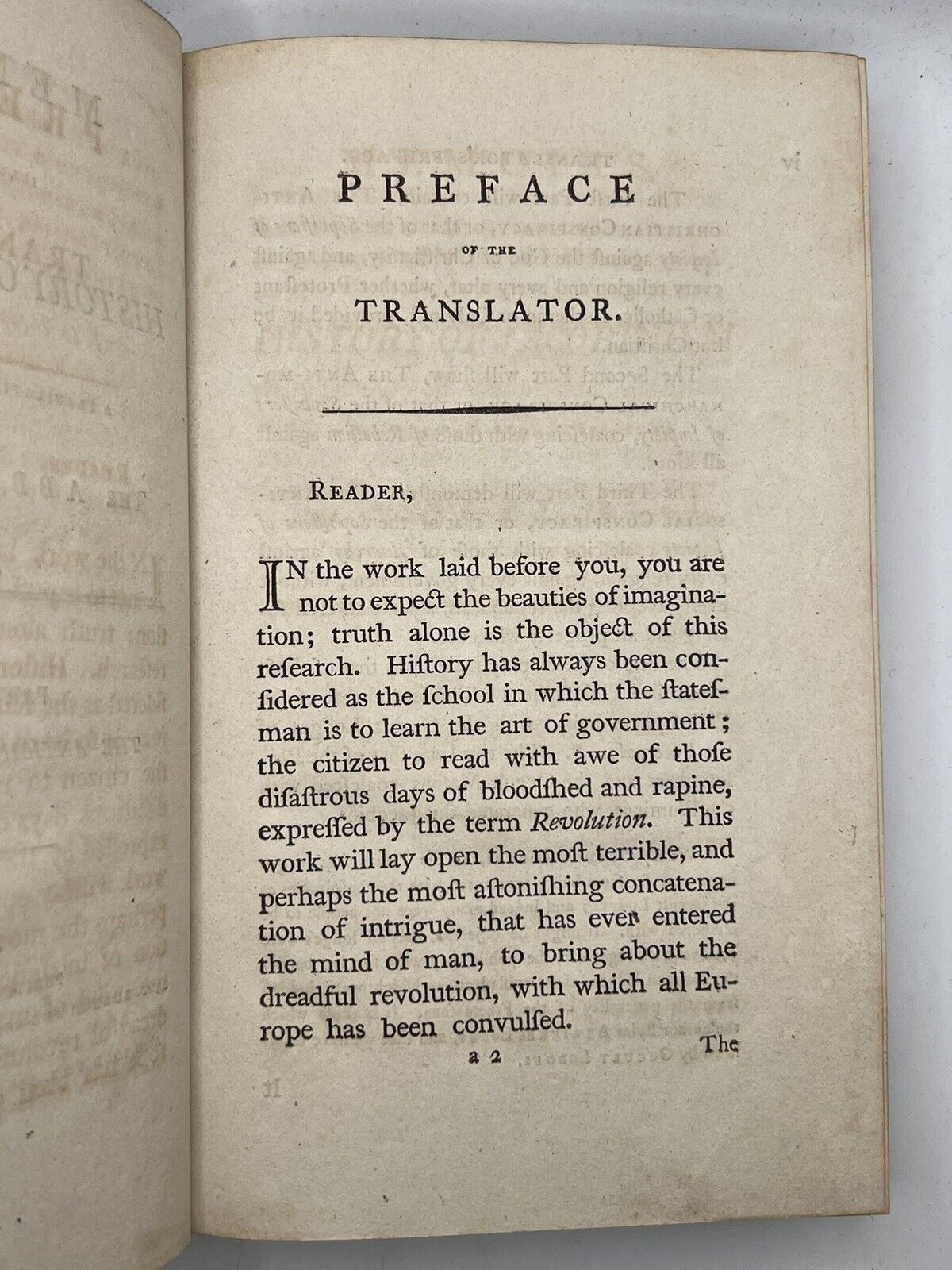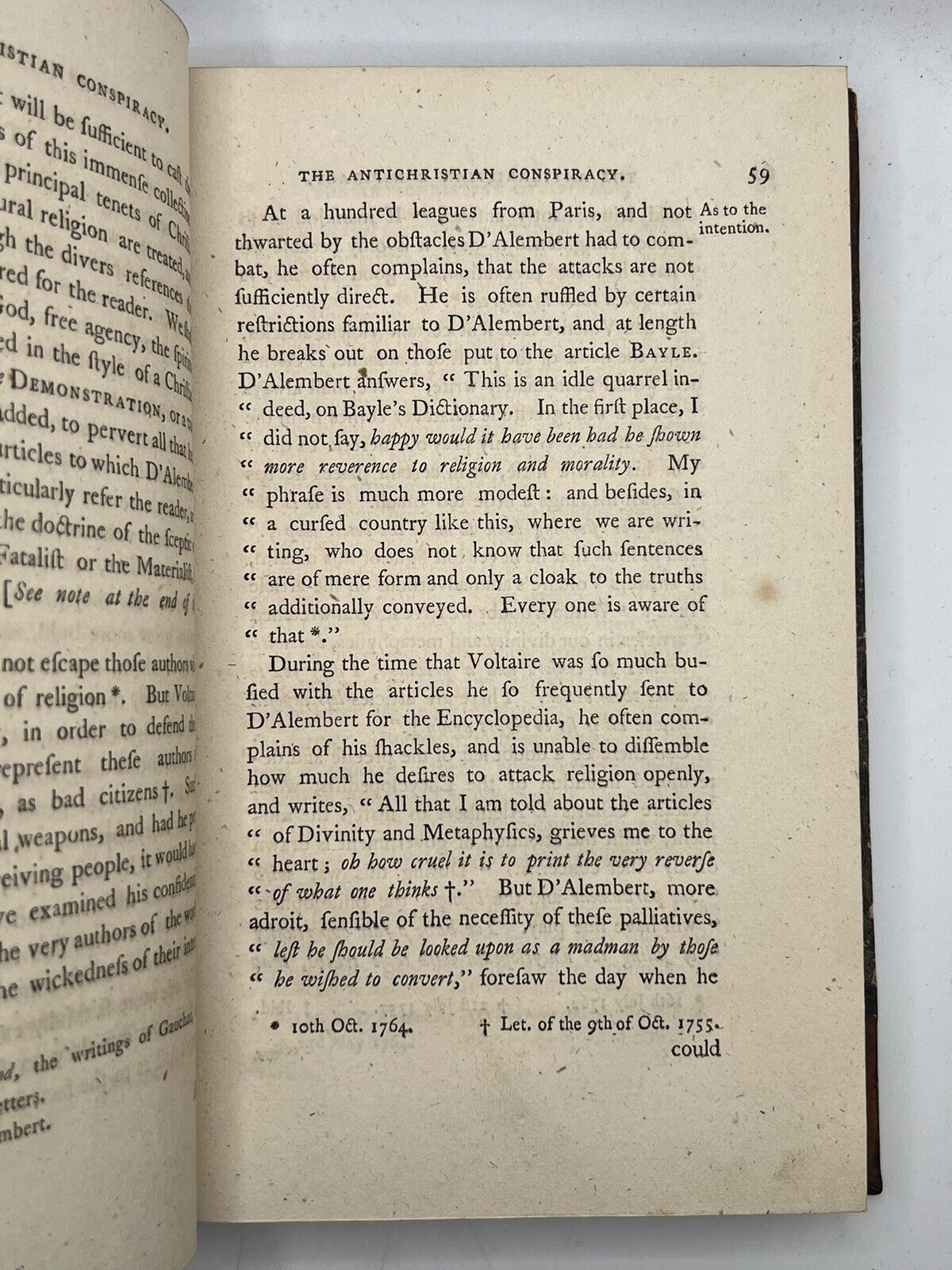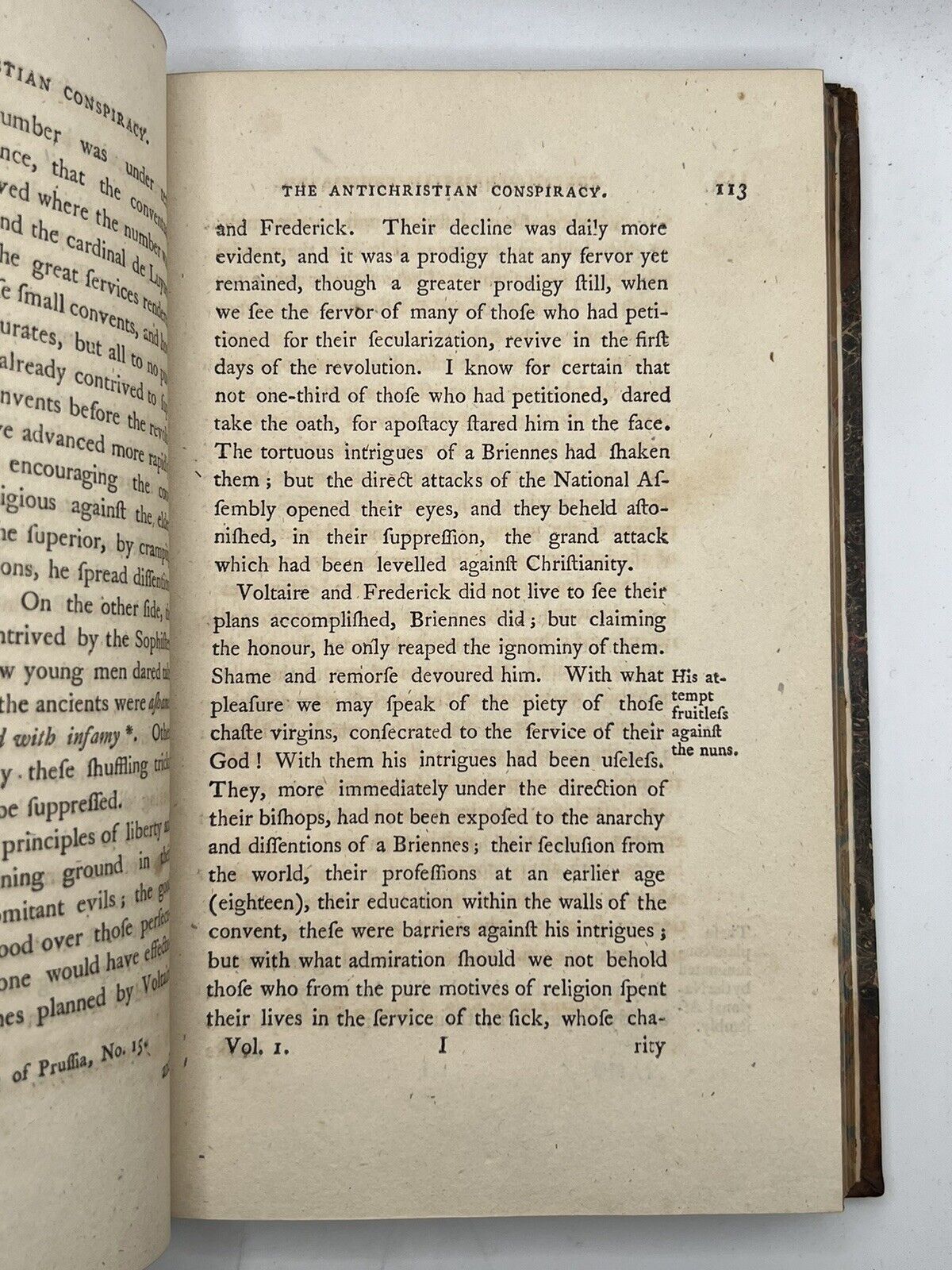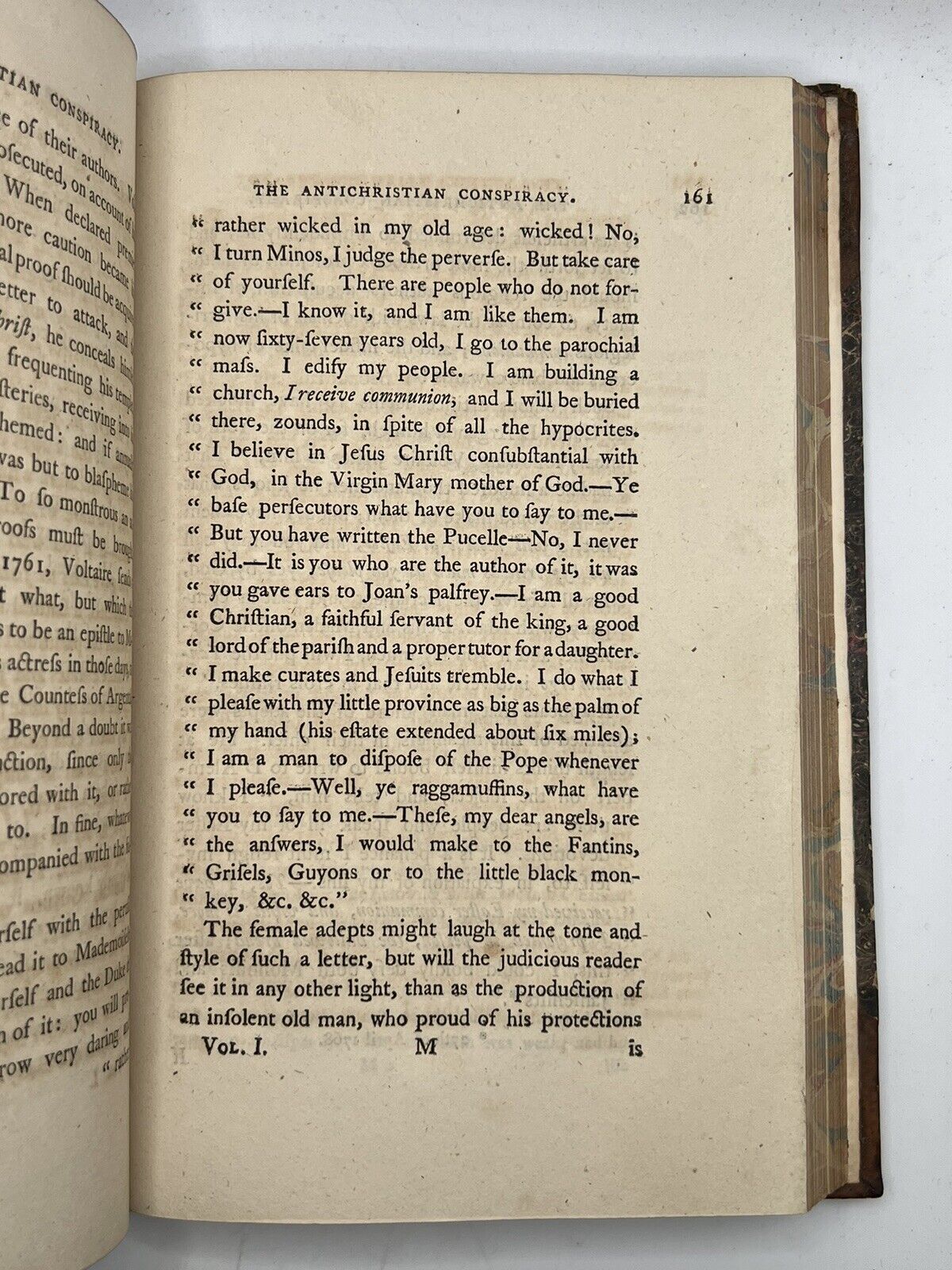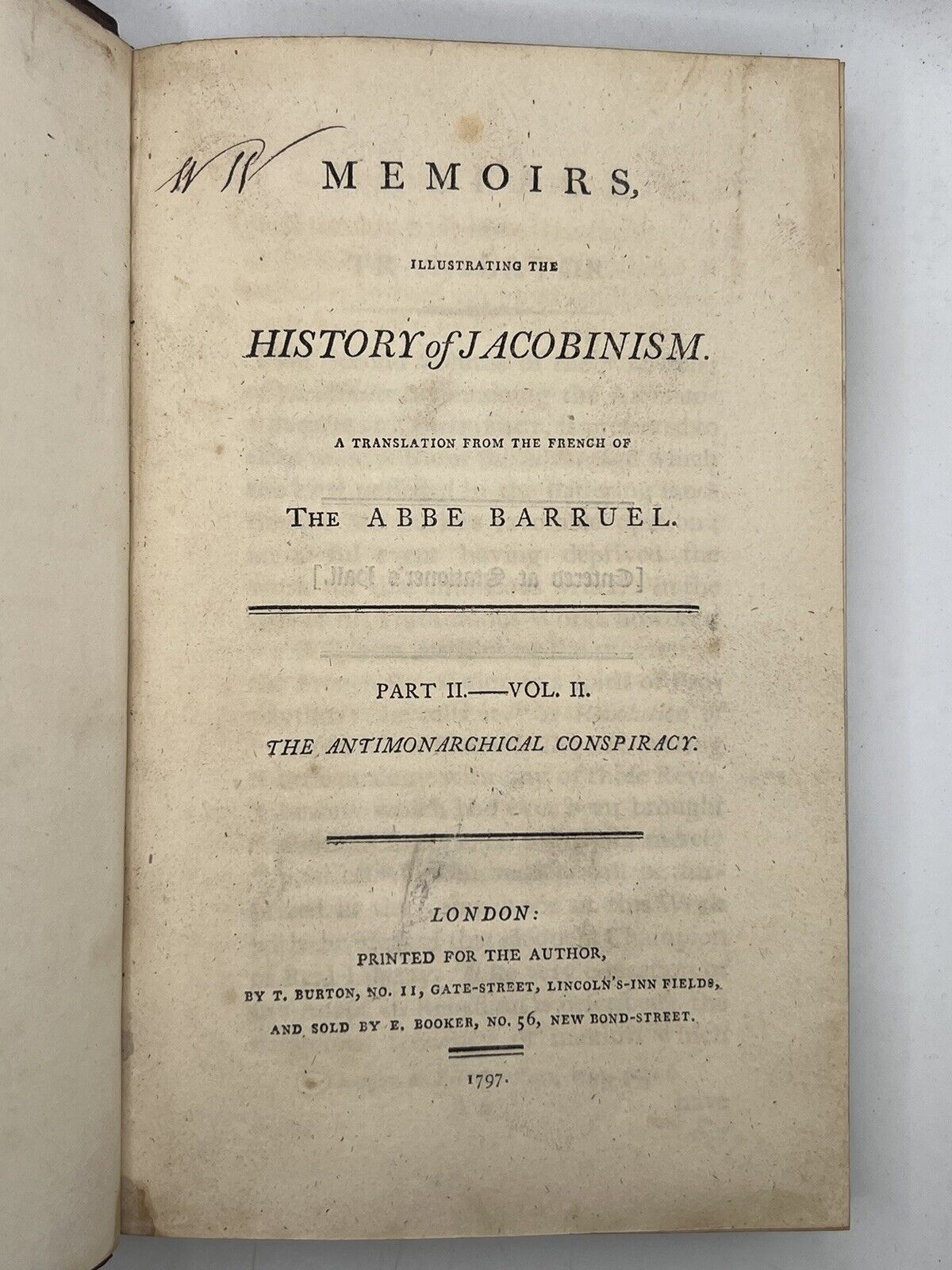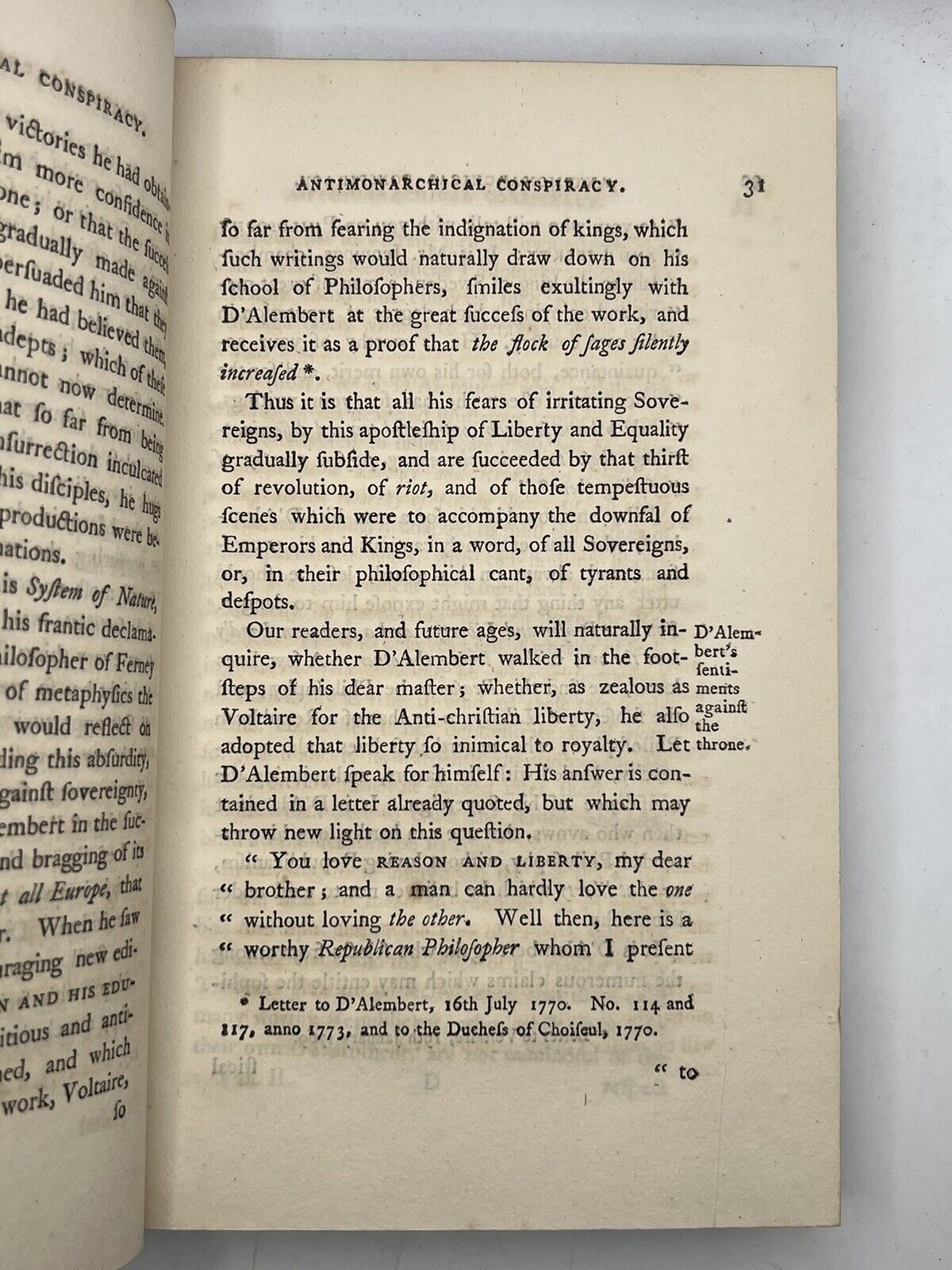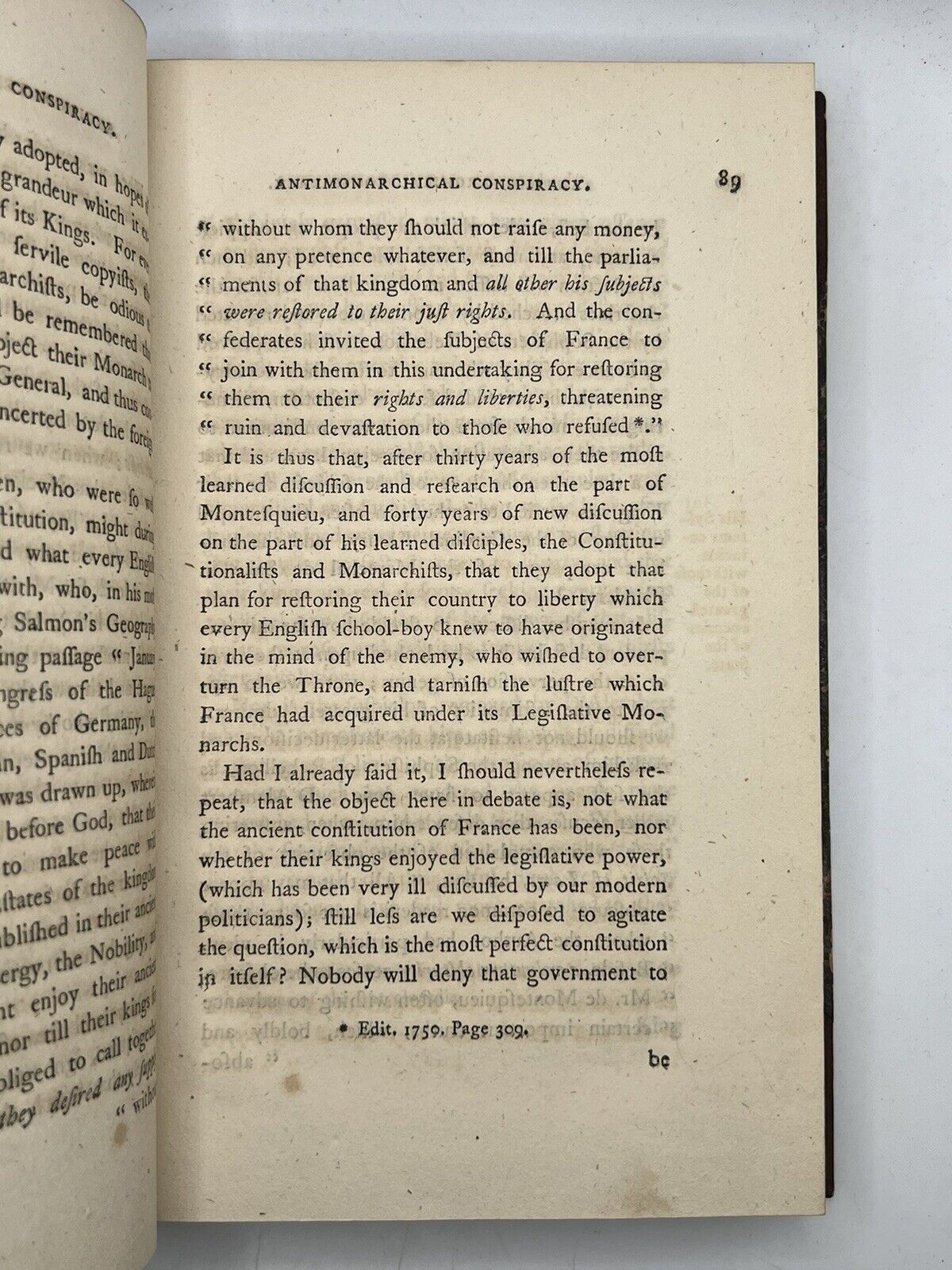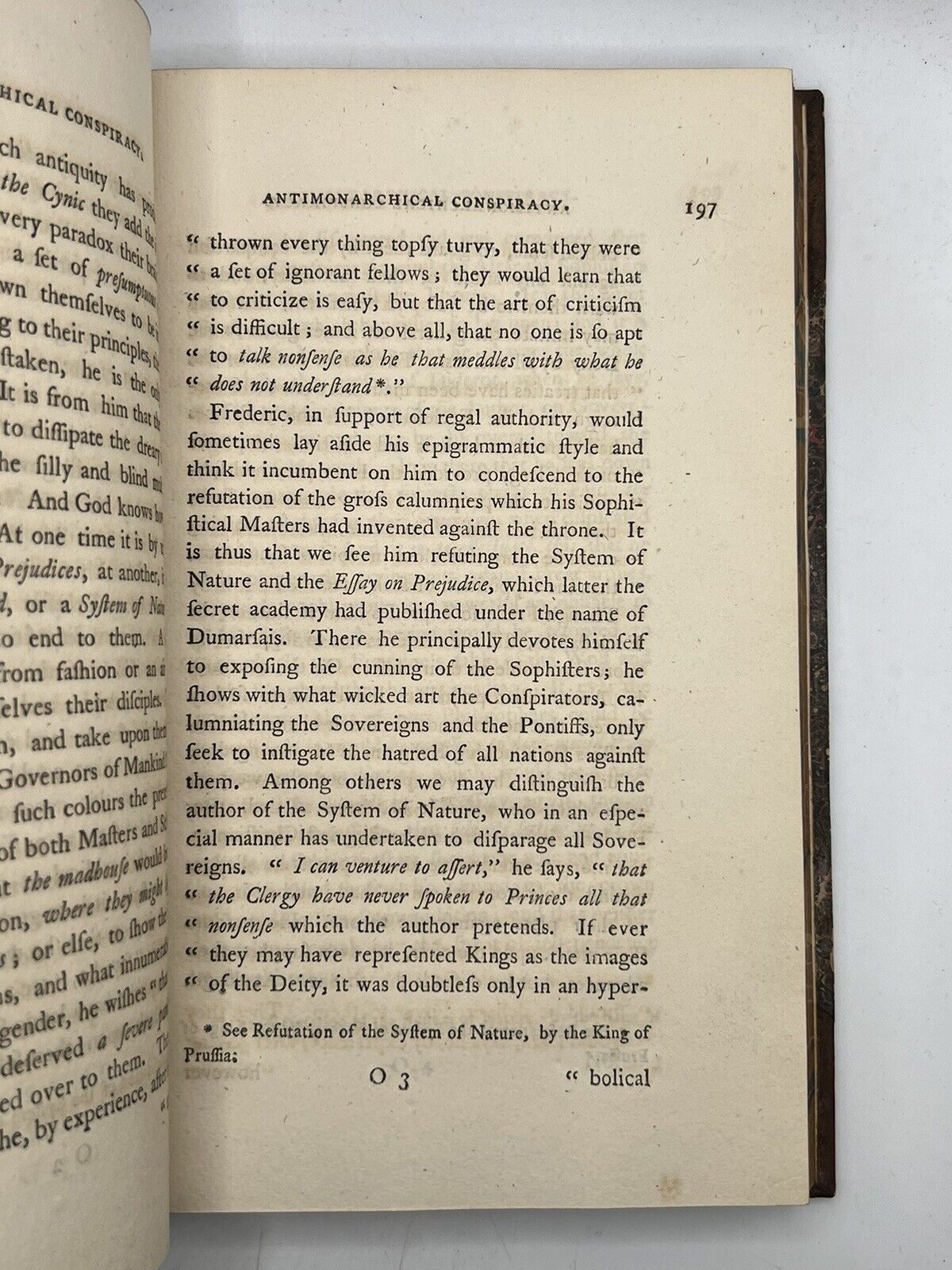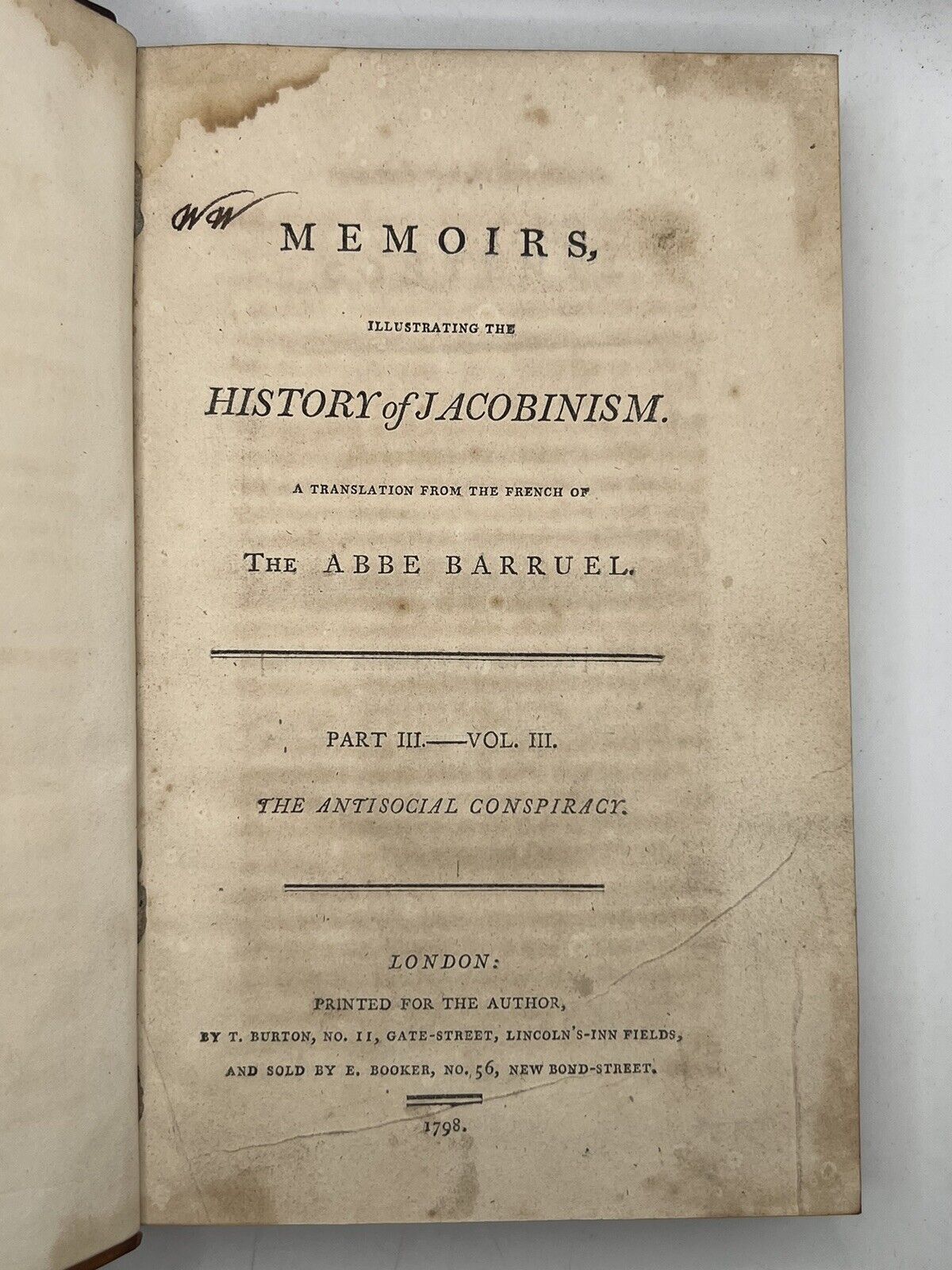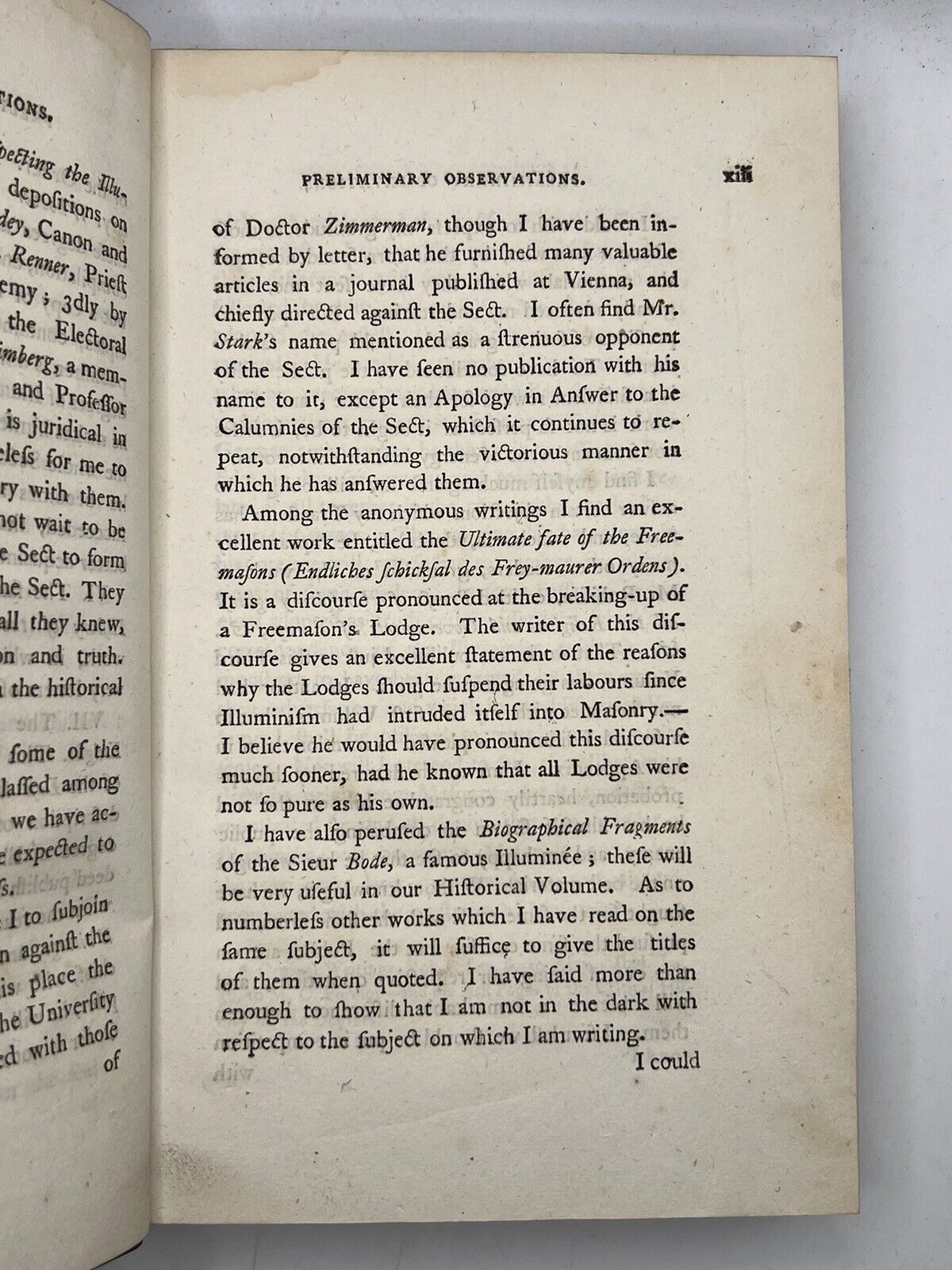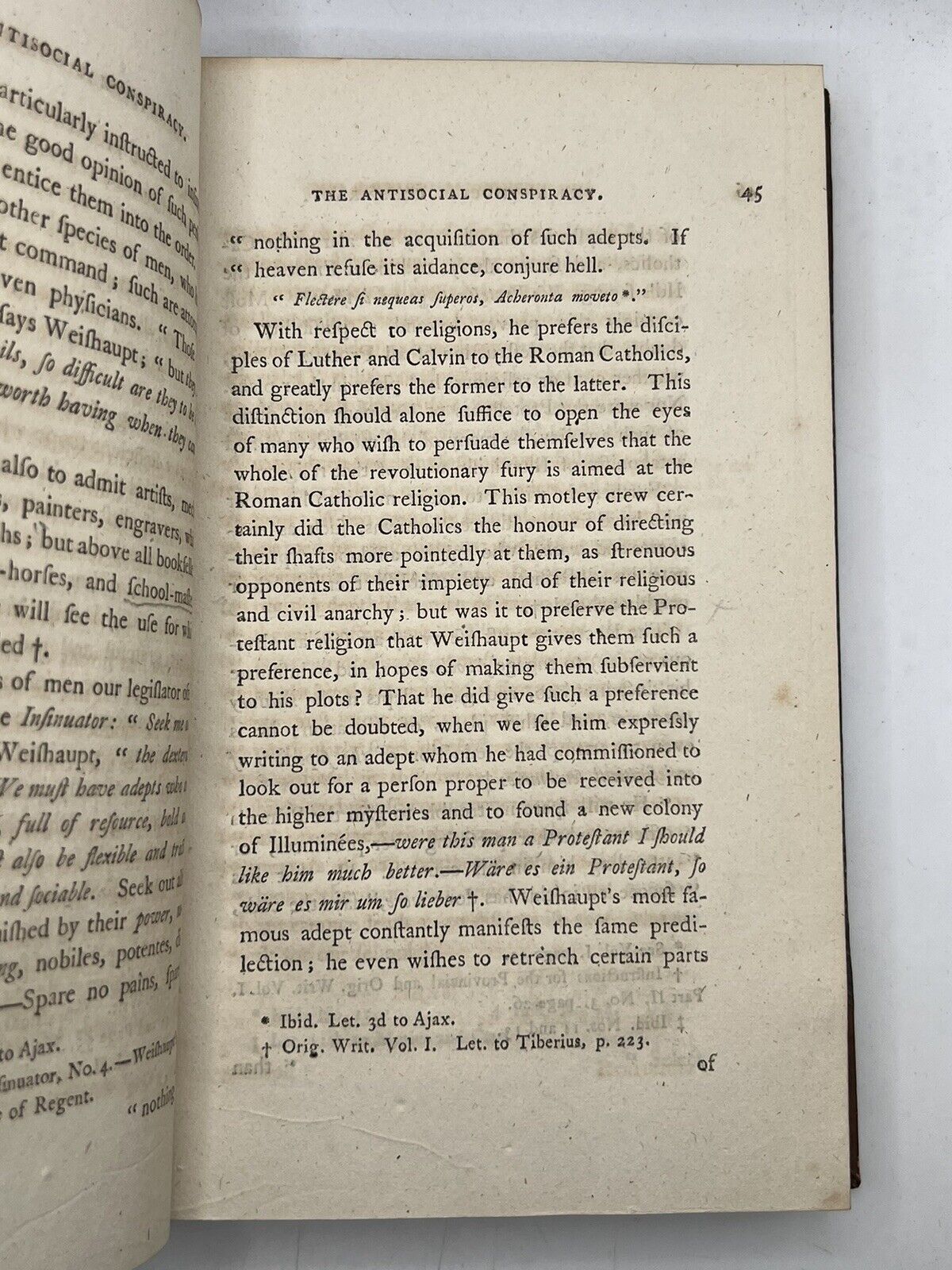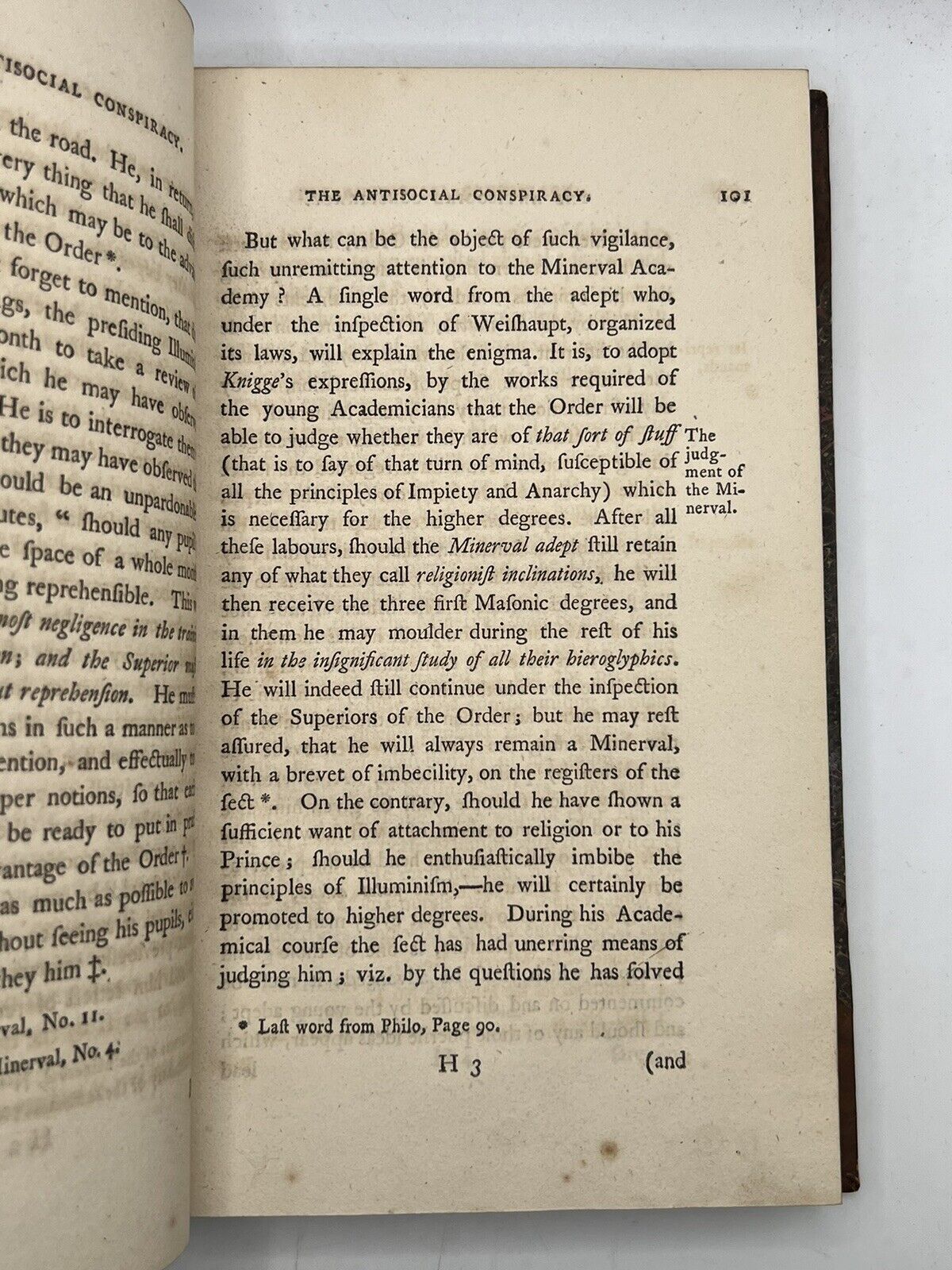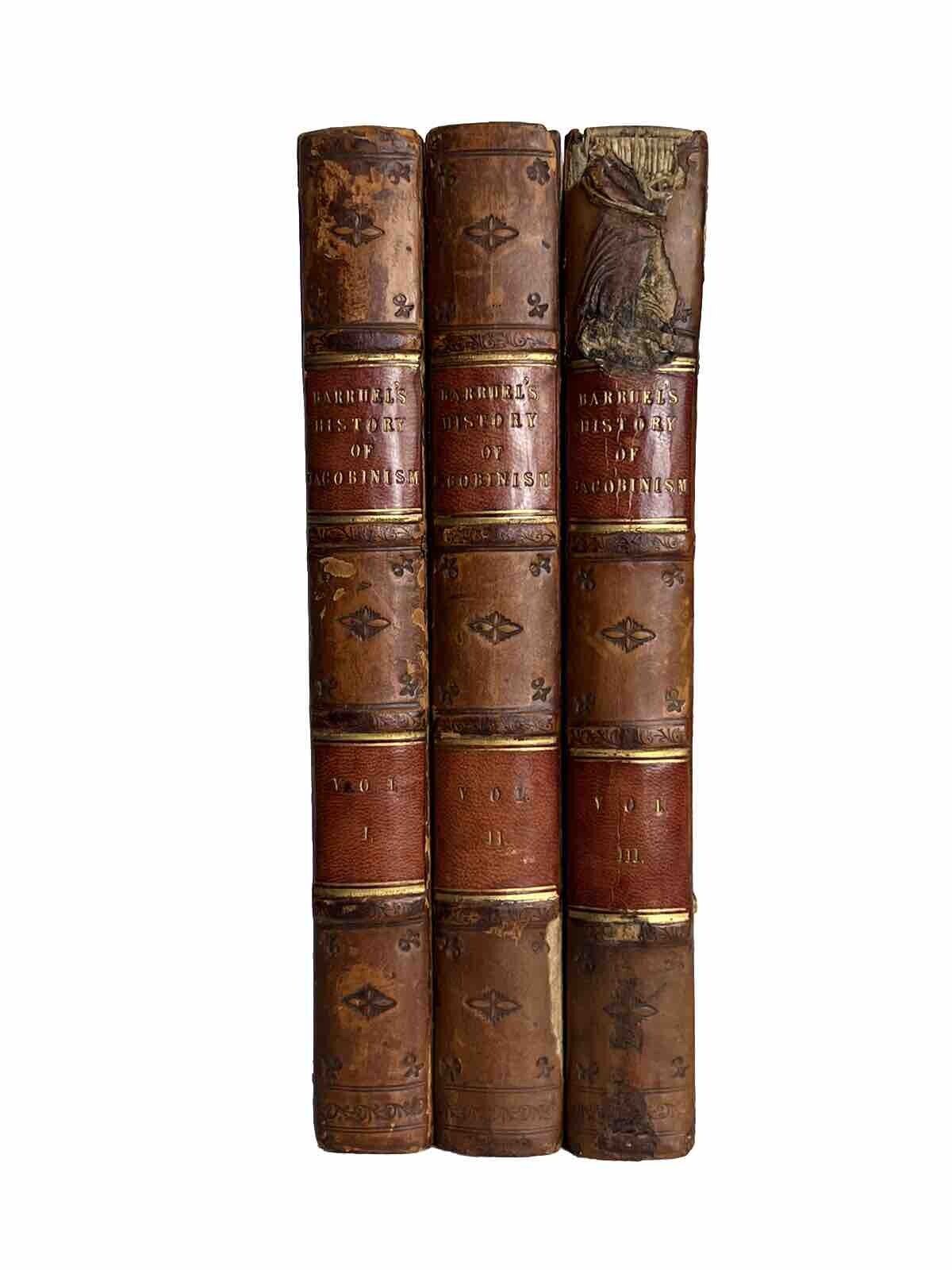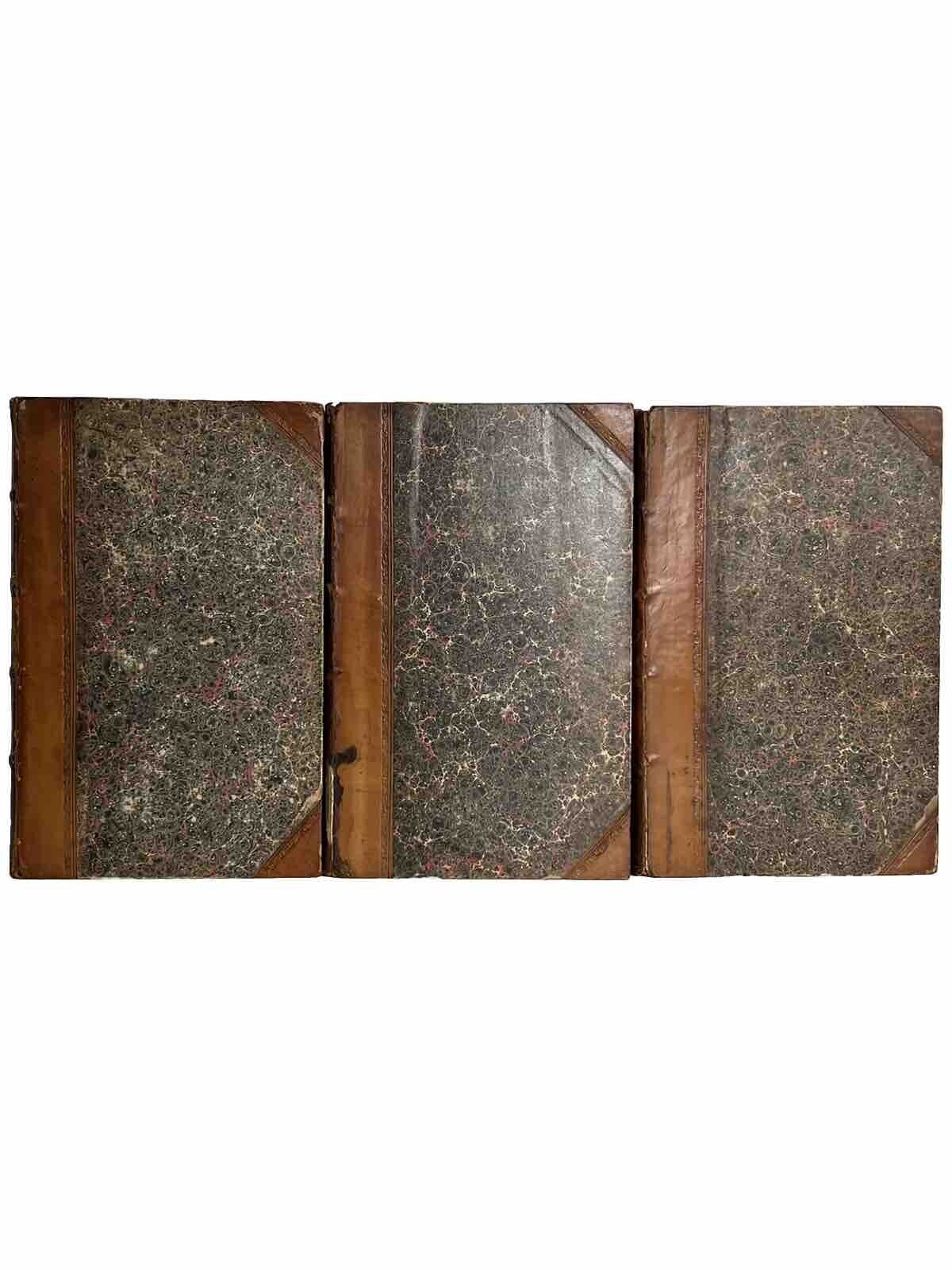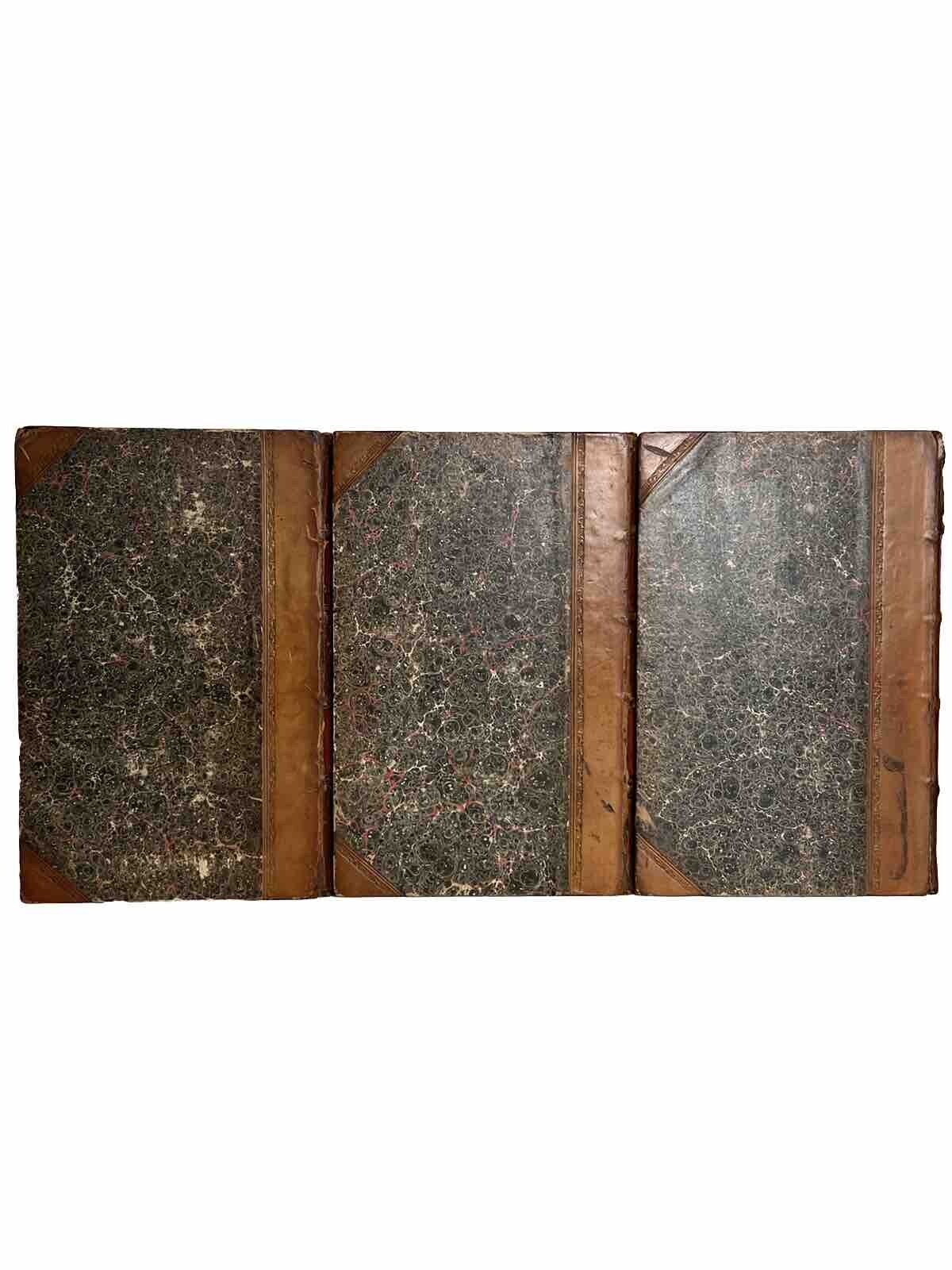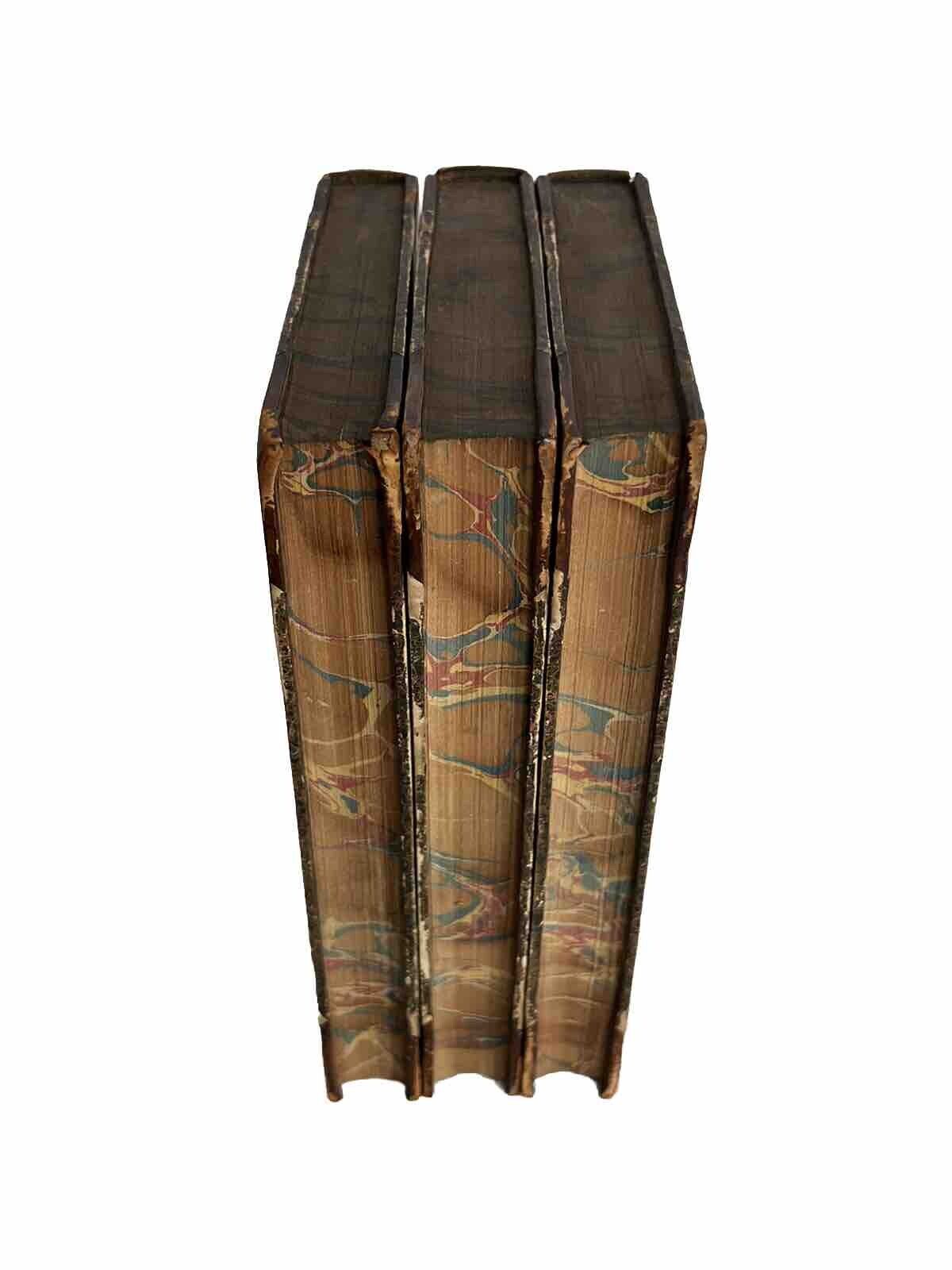History of Jacobinism by Abbe Barruel 1797-8
History of Jacobinism by Abbe Barruel 1797-8
Couldn't load pickup availability
Memoirs, Illustrating the History of Jacobinism. A Translation from the French of the Abbe Barruel. London: Printed for the Author, by T. Burton and Co., and Sold by E. Bookes, 1797-8.
FIRST EDITION IN ENGLISH OF ONE OF THE EARLIEST HISTORIES OF THE SECRET SOCIETY OF THE ILLUMINATI, ALONGSIDE FREEMASONRY, ADAM WEISHAUPT, ANTI-MONARCHICAL CONSPIRACY THEORIES, AND ANTI-CHRISTIAN CONSPIRACY THEORIES.
WRITTEN BY "THE FATHER OF THE MODERN CONSPIRACY THEORY"
-------------------
VERY RARE. Contains one of the earliest written accounts of the Illuminati and its founding by Adam Weishaupt, as well as the involvement of the Illuminati in society, seeking to bring about its destruction, as well as the conspiratorial efforts of the Freemasons, the Illuminati, the philosophes of the Enlightenment period, etc, in bringing about the end of Christianity, the French monarchy, etc. More detail below.
-------------------
The author, Abbe Barruel describes the end of the 18th century as "one continuous chain of cunning, art, and seduction" intended to bring about the "overthrow of the altar, the ruin of the throne, and the dissolution of all civil society".
The first volume examines the anti-Christian conspiracy that was begun by Voltaire in 1728 when Barruel claimed that Voltaire "consecrated his life to the annihilation of Christianity". Barruel returned to the principal texts of the Enlightenment and found reasons to draw close links between the philosophism of the time and the anti-Christian campaigns of the Revolution. Here he found that the philosophes had created an age of pretend philosophy which they used in their battle with Christianity. Their commitment to liberty and equality were really commitments of "pride and revolt". Barruel claimed that the proponents of the Enlightenment led people into illusion and error and refers to the philosophers as "Writers of this species, so far from enlightening the people, only contribute to lead them into the path of error". He alleged that Voltaire, Jean le Rond d’Alembert, Denis Diderot, and Frederick II, the King of Prussia, planned the course of events that led to the French Revolution. They began with an attack on the Church where a "subterranean warfare of illusion, error, and darkness waged by the Sect" attempted to destroy Christianity. The influence of the philosophers could not be underrated according to Barruel. They created the intellectual framework that put the conspiracy in motion and controlled the ideology of the secret societies. Barruel appears to have read the work of the philosophers and his direct and extensive quotes show a deep knowledge of their beliefs. This is unusual among the enemies of the Enlightenment, who rarely distracted themselves by reading the works and authors they were attacking. Barruel believed the philosophers were important as the original villains that seduced the population and made Enlightenment, and subsequently revolutionary, ideals favourable.
The second volume focuses on the anti-monarchical conspiracy that was led by Jean Jacques Rousseau and Baron de Montesquieu. These conspirators sought to destroy the established monarchies under the guise of "Independence and Liberty". Barruel analyses and criticises Montesquieu's The Spirit of Laws and Rousseau's Social Contract because the application of the ideas expressed in these books had "given birth to that disquieted spirit which fought to investigate the rights of sovereignty, the extent of their authority, the pretended rights of the free man, and without which every subject is branded for a slave - and every king a despot". He believed that the influence of these two writers was a necessary factor in the enactment of the French Revolution. He agreed with the revolutionaries as they themselves placed the remains of Voltaire and Rousseau in the Pantheon to pay homage to the "fathers of the revolution". Barruel believed that the philosophers had created a lasting influence as their spirit survived through their writings and continued to promote anti-monarchical feelings within the Jacobins and the revolutionaries. The destruction of monarchies in Europe led to the triumph of the Jacobins as they trampled "underfoot the altars and the thrones in the name of that equality and that liberty which summon the peoples to the disasters of revolution and the horrors of anarchy". Barruel equated the rejection of monarchy with a rejection of any type of order and government. As a result, the principles of equality and liberty and their attacks against the monarchy were attacks against all governments and civil society. He presented a choice to his readers between monarchy and the "reign of anarchy and absolute independence".
Barruel's third volume addresses the antisocial conspiracy that was the objective of the Freemasons and the Order of the Illuminati. The philosophers and their attacks against the church and the throne paved the way for the conspiracy that was led by these secret societies. These groups were believed to have constituted a single sect that numbered over 300,000 members who were "all zealous for the Revolution, and all ready to rise at the first signal and to impart the shock to all others classes of the people". Barruel surveyed the history of Masonry and maintained that its higher mysteries had always been of an atheist and republican cast. He believed the Freemasons kept their words and aims secret for many years but on August 12, 1792, two days after the fall of the French monarchy, they ran through the streets openly announcing their secrets. The secret words were "Liberty, Equality, and Fraternity" and the secret aim was the overthrow of the French monarchy and the establishment of the republic. Barruel claimed he heard them speak these words in France but that in other countries the Masons still kept their secrets. A division of the group into numerous lodges ensured that if the secrets of one lodge were discovered, the rest would remain hidden. He believed that it was his job to warn all governments and people of the goals of the Freemasons. Barruel described in detail how this system worked in the case of the Illuminati. Even after Johann Adam Weishaupt, the leader of the sect, was discovered and tried in court, the proceedings could not uncover the universal influence of the Illuminati and no steps were taken against the group. The majority of the secret societies could always survive and carry on their activities because of the organisation of the group. The Illuminati, as a whole, functioned to radicalise the movement against the throne and altar and influenced more members of the population to subscribe to their hidden principles. They refined the secret structure that had been provided by the Masons basic framework.
For Barruel, the final designs of the coalition of the philosophers, the Freemasons and the Illuminati were achieved by the Jacobins. These clubs were formed by "the adepts of impiety, the adepts of rebellion, and the adepts of anarchy" working together to implement their radical agenda. Their guiding philosophy and actions were the culmination of the conspiracy, as they directly wanted to end the monarchy and the church. Barruel believed that the only difference between the Jacobins and their precursors was that the Jacobins actually brought down the church and the throne and were able to institute their basic beliefs and goals, while their precursors only desired to do these things without much success.
-------------------
Edmund Burke, an English political thinker and the Revolution's most known intellectual foe, was impressed by the work of Barruel in uncovering a connection between the Enlightenment and the French Revolution. Burke wrote a letter to Barruel and expressed his admiration. He wrote, "I cannot easily express to you how much I am instructed and delighted by the first volume of your History of Jacobinism." He praised "the whole of the wonderful narrative" for being supported by documents and proofs with "the most judicial regularity and exactness." At the end of the letter Burke added: "I forgot to say, that I have known myself, personally, five of your principal conspirators; and I can undertake to say from my own certain knowledge, that as far back as the year 1773, they were busy in the plot you have so well described, and in the manner, and on the principle you have so truly represented. To this I can speak as a witness."
Barruel is seen as the father of modern conspiracy theory.
-------------------
Size: 140 x 214 mm (approx., each)
Condition:
[t.p., iii-xxiv, 387pp., 1pp. (errata)]; [t.p., iii-viii, 479pp.]; [t.p., i-ii, v-xviii, 422pp., 1ff. (advertisements)]
Three volumes only (1-3), of four. A very scarce work. Contemporary, most likely original, half calf over marbled paper backed boards, the bindings rubbed with spines a little faded but remaining very presentable and attractive on the shelf. Wear at the head of the backstrip of the third volume, seemingly having been reglued at some time rather naively, with loss. Rubbing along the joints, cracked, but with all boards securely attached, the bindings secure, and without shelf lean. Shelf and edge wear. No attached bookplates. Top page edges uniformly dulled, else edges are very good. Very clean through the text blocks, mildly toned, with the odd spot of foxing, else internally excellent.
[OCLC 519407209, 23618527].
